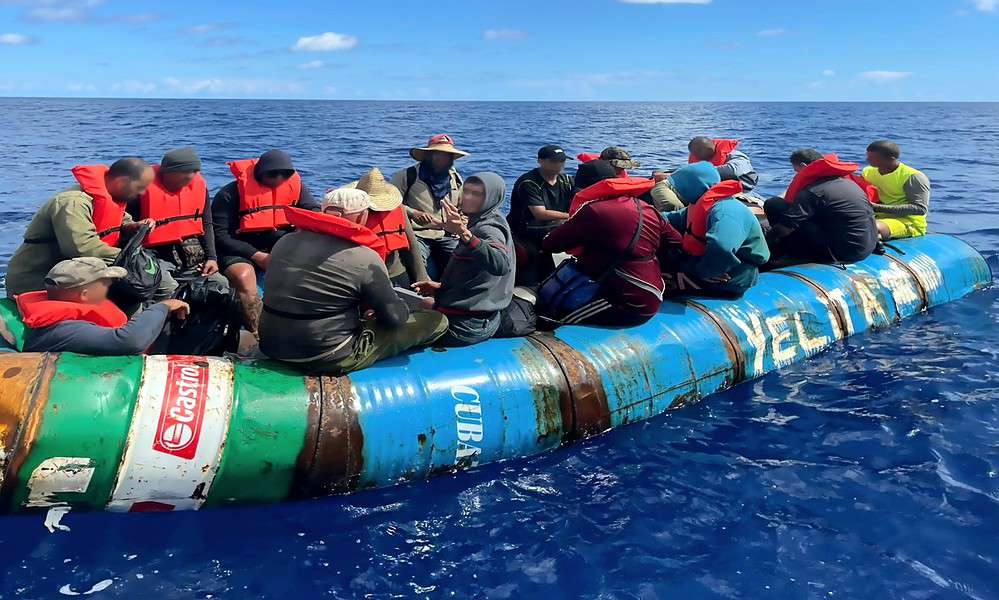Title: Cuban Government Highlights “Punishment” for Illegal Entry as More Migrants Repatriated
Introduction:
In a recent wave of repatriations, a number of Cuban migrants have been returned to their home country after unsuccessful attempts to enter the United States or other countries irregularly. As the Cuban Embassy in Havana underscores the consequences for those who try to access or remain illegally in Cuba, tensions surrounding migration policies continue to rise. Meanwhile, the United States Coast Guard and Customs and Border Protection Service (CBP) are actively enforcing immigration regulations, with thousands of Cubans already facing expulsion orders.
Repatriations Follow Intercepted Migrant Boats:
During the past week, the United States Coast Guard intercepted three migrant boats originating from Haiti and Cuba. According to the official report, 89 people were repatriated to Haiti, while 54 were sent back to Cuba. Notably, two of the Cuban migrants had pending legal issues within the Cuban justice system and were handed over to the appropriate authorities.
Fourth Deportation Flight of 2023 Arrives in Havana:
On Thursday, July 20, the fourth deportation flight of 2023 arrived in Havana from the United States. Thirty-three Cuban individuals who tried to enter the United States without authorized permission were repatriated. This highlights the ongoing challenges faced by Cuban migrants attempting to reach the US despite stricter immigration policies.
Ban on Re-entry to the United States:
The United States Embassy in Havana announced that the 54 individuals repatriated to Cuba after the recent interdictions carried out by the US Coast Guard would face a five-year ban on entering the United States. This measure underscores the growing concern regarding illegal immigration and the desire to enforce immigration laws more strictly.
Repatriations and “Punishment”:
The Customs and Border Protection Service (CBP) emphasizes the consequences for migrants attempting to enter the US irregularly. Those lacking a legal basis to remain and who cannot be removed under Title 42 regulations will be subject to expedited removal to their country of origin and a five-year re-entry ban. To date, a total of 4,121 Cubans have been returned to Cuba through 93 repatriation operations, conducted via both air and sea. The University of Syracuse has reported that 44,095 Cubans currently have expulsion orders until the fourth month of 2023, indicating a high level of enforcement activity.
Sizable Number at Risk of Deportation:
Journalist Daniel Benítez highlights that the number of Cubans at risk of deportation exceeds 13,000, despite official figures reporting far fewer expulsions. This discrepancy aligns with accumulated figures from fiscal year 2017, when former President Barack Obama signed a joint declaration to normalize migratory relations with Cuba. As the situation continues to unfold, the fate of many Cuban migrants remains uncertain.
Conclusion:
As more Cuban migrants attempt to reach the United States and other countries irregularly, governments are stepping up efforts to enforce immigration laws and repatriate those who fail to gain legal entry. The Cuban government is reminding its citizens about the “punishments” that await those who try to access or remain in the country illegally. With thousands of Cubans facing expulsion orders and a significant number at risk of deportation, the migration crisis continues to be a pressing issue for both Cuba and its neighboring nations.
